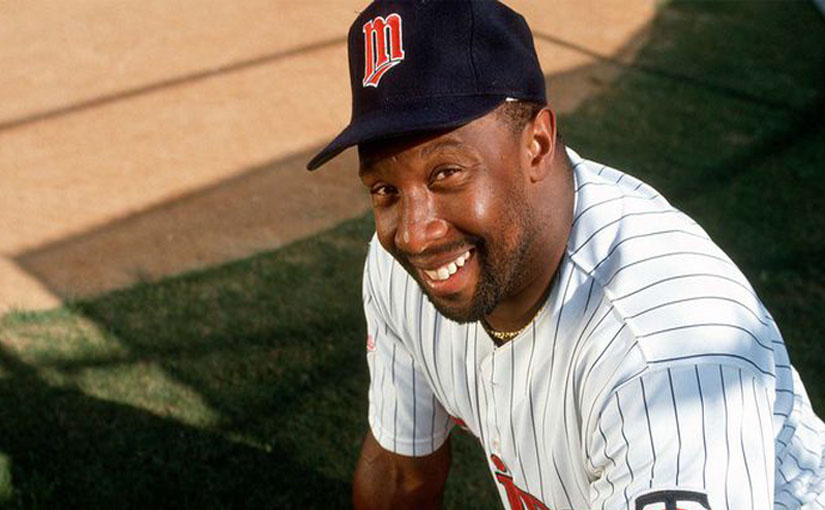If you weren’t paying attention it would have been pretty easy to miss a key moment in the Minnesota Twins franchise beginning its upswing after years of futility. The date was January 12, 1982, and temperatures in Minneapolis were in the single digits when Major League Baseball held its January draft.
A baseball draft during the middle of the NFL playoff season usually didn’t cause much of a stir. Yet two days after the San Francisco 49’ers and Cincinnati Bengals earned the right to face off in Super Bowl XVI, Major League Baseball held the latest installment of its January draft.
The Toronto Blue Jays held the first pick and selected college catcher Kash Beauchamp who, despite having a fantastic name, never played in the big leagues. The Chicago Cubs had the 2nd pick and chose a catcher named Troy Afenir, who played 45 games for three different organizations. Perhaps the Cubs should have looked a bit closer to home.
With the third pick in the January 1982 draft, the Minnesota Twins selected a pudgy outfielder from Triton College in River Grove, IL named Kirby Puckett. Minnesota assistant farm director Jim Rantz had spotted Puckett about 6 months earlier in the Central Illinois Collegiate League and had kept tabs on him. But the fact that both Rantz and Puckett were both at that game in the summer of 1981 was the culmination of an amazing series of events.
Long Strange Trip
Kirby Puckett grew up in The Robert Taylor Homes on Chicago’s south side, “a place where hope dies,” as he put it in his 1993 autobiography “I Love This Game.” Kirby was the youngest of nine children and didn’t play organized baseball until he was 15 after he and his family moved to Calumet, Illinois. It didn’t take him long to excel.
Kirby was a standout high school player at Calumet High School but didn’t receive any attention in the draft. The one school interested in him was in Miami, Florida, a place too far away from Calumet for Puckett to consider. After graduation, Puckett took a job at a Ford factory where he installed carpet in Thunderbirds rolling down an assembly line. At the time, the policy was you could work at the Ford plant in Calumet for 90 days before you became an official unionized employee. The plant laid him off after 89 days.
Ford Tough
With some extra time on his hands, Puckett attended an open tryout held by the Kansas City Royals. The Royals didn’t sign him, but he did catch the eye of Dewey Kalmer, who was the head coach at Bradley University. Kalmer offered Pucket a scholarship, but things didn’t work out at Bradley. Puckett was a freshman on a senior-dominated team and didn’t get as much playing time as he had hoped so he transferred to Triton to be closer to home.

It was in the summer before beginning school at Triton that Puckett caught the eye of Rantz. Major League Baseball was enduring a work stoppage that would ultimately last for 50 days. It was a bad situation, but it allowed Rantz to go see his son play in a summer league, an opportunity he normally might not have had.
“I was on the other team that night and had a good game…” said Puckett. “…homer, couple of hits, stole a few bases threw a guy out at home.” Had big leaguers been playing at the time there’s a chance the Twins wouldn’t had had any idea who Puckett was, at least in 1981.
Draft Day Part II
Puckett enrolled at Triton in the fall and in January of 1982, the Twins selected him in the first round of the draft. In typical Twins fashion, they made him a lowball offer; a signing bonus of just $2,000. Puckett quickly declined, telling the Twins that he had made $2,000 a month installing carpets in T-Birds. Minnesota upped their offer to $6,000 but it still wasn’t enough. Their “thrifty” way of doing things nearly backfired on them in a big way.
Puckett had an amazing season at Triton, earning Junior College Player of the Year honors for his region and, as the June draft approached the Twins were in danger of losing his rights. “If the Twins haven’t already signed him, Puckett could touch off a bidding war,” read a Chicago Tribune article.
Minnesota offered Puckett a $20,000 signing bonus and, despite being told he could command significantly more if he went back into the draft, he signed with the Twins. His motivation? Minnesota owner Calvin Griffith had traded away all his best talent and Puckett felt signing with the Twins represented a quicker path to the big leagues. Turns out he was right. Puckett hit .382 in the Appalachian League in 1982 and followed that up by batting .314 in the California League in 1983. He began 1984 in Triple-A, but spent just 21 games in Toledo before making his big league debut in May.


